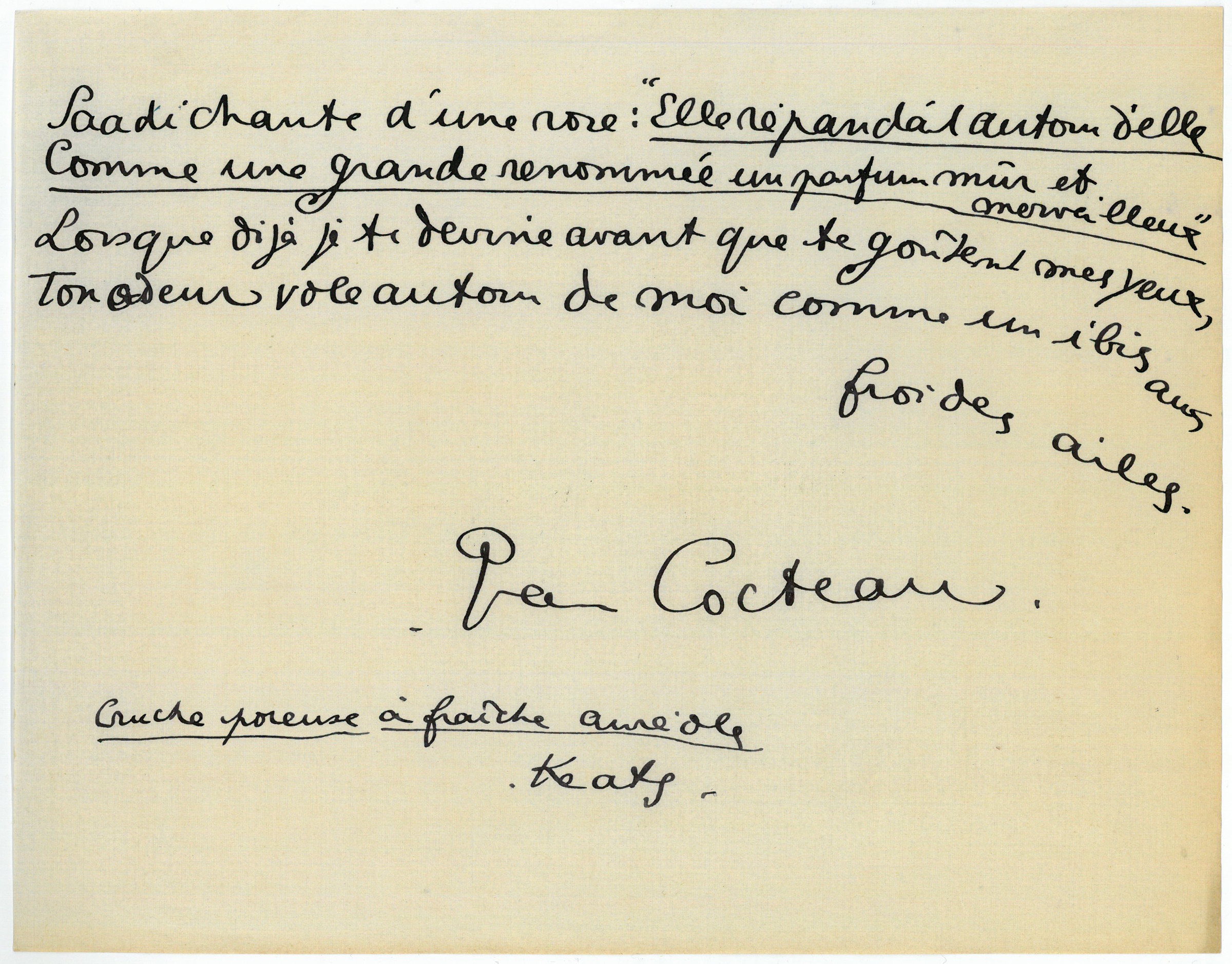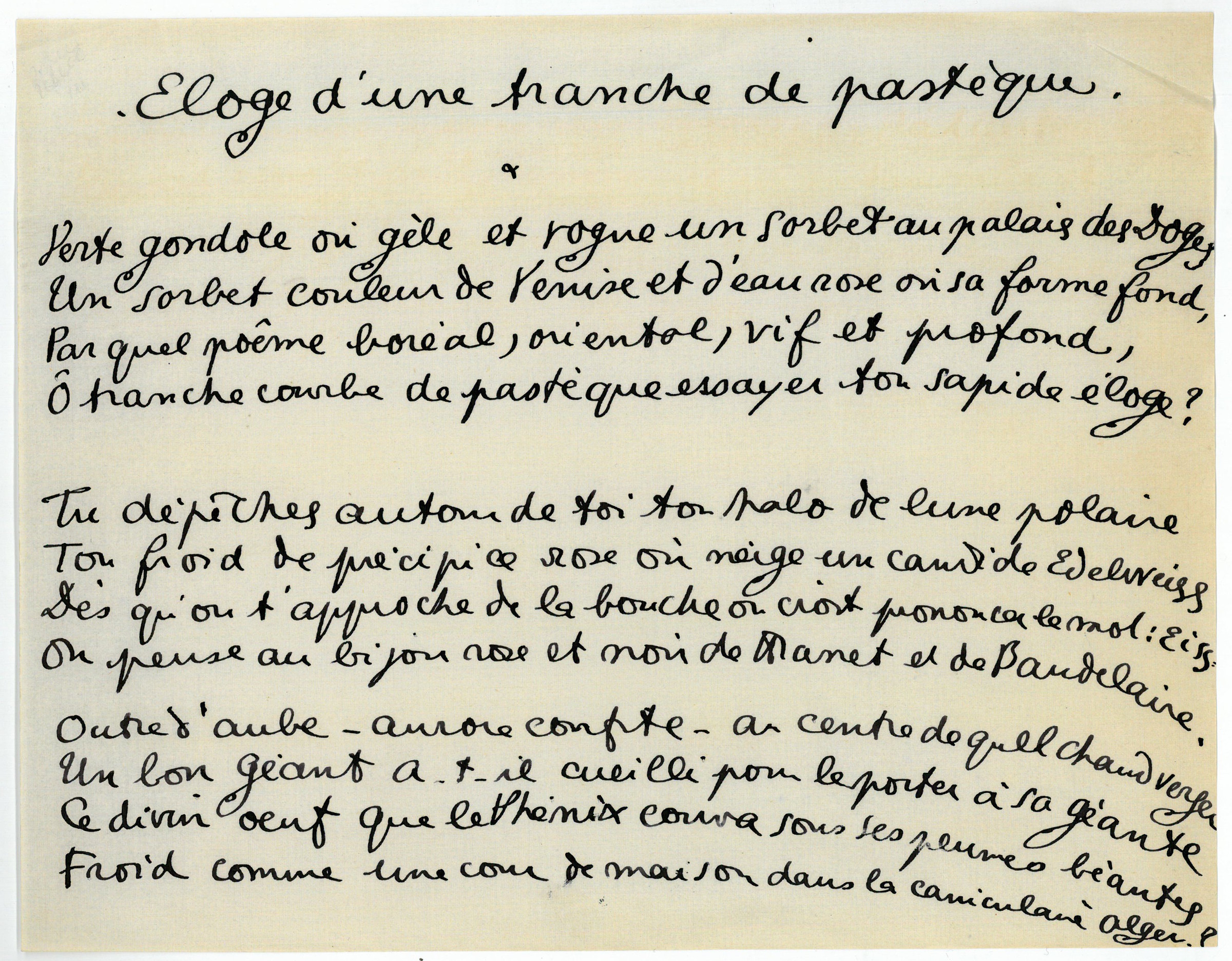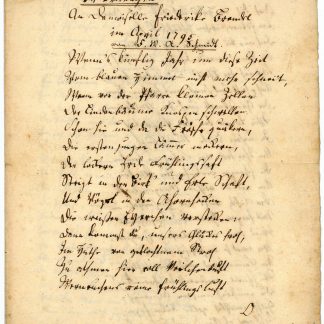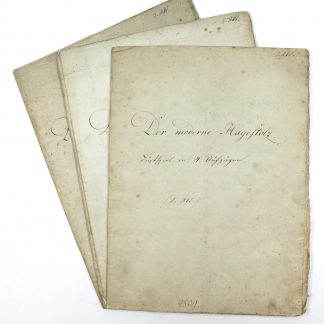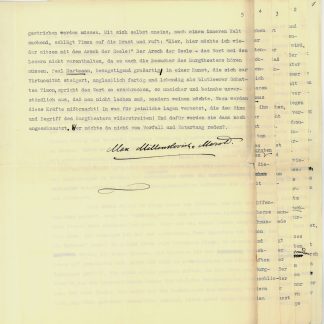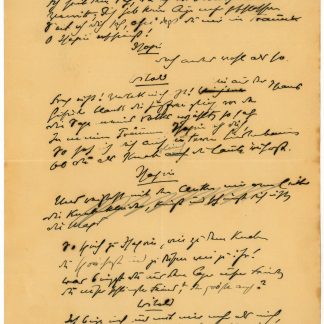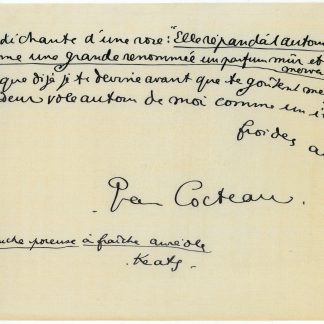"Éloge d'une tranche de pastèque". Autograph poem signed ("Jean Cocteau").
Oblong 4to. French manuscript on paper. 2 pp. on 2 ff.
€ 1.800,00
Charming "Eulogy to a slice of watermelon" from Cocteau's youth, published in a slightly different version in his Collected Poetical Works. The first of four quatrains reads: "Verte gondole où gèle et vogue un sorbet au palais des Doges | Un sorbet couleur de Venise et d'eau rose où sa forme fond | par quel poème boréal, oriental, vif et profond, | Ô tranche courbe de pastèque essayer ton sapide éloge ?". In the second stanza, Cocteau alludes to Baudelaire's quatrain inspired by Édouard Manet's painting "Lola de Valence" in quoting the phrase "bijou rose et noir", now evocative of the dark seeds bedded in the pink flesh of a watermelon: "Tu dépêches autour de toi ton halo de lune polaire | Ton froid de précipice rose où neige un candide Edelweiss | Dès qu'on t'approche de la bouche on croit prononcer le mot : Eiss [!] | On pense au bijou rose et noir de Manet et de Baudelaire".
The oriental theme of the first stanza recurs in the third and the forth quatrains, as Cocteau first compares the freshness of the fruit to the cool courtyard of a traditional house in Algiers and then quotes Saadi on the scent of roses: "Elle répandait autour d'elle comme une grande renommée un parfum mûr et merveilleux". This quote, as well as one attributed to John Keats that is not part of the poem, but underlined at the bottom of the page ("Cruche poreuse à fraîche auréole"), seem to be of Cocteau's invention.
Well preserved.
J. Cocteau, Œuvres poétiques complètes, Paris: Gallimard, 1999, p. 1522.

